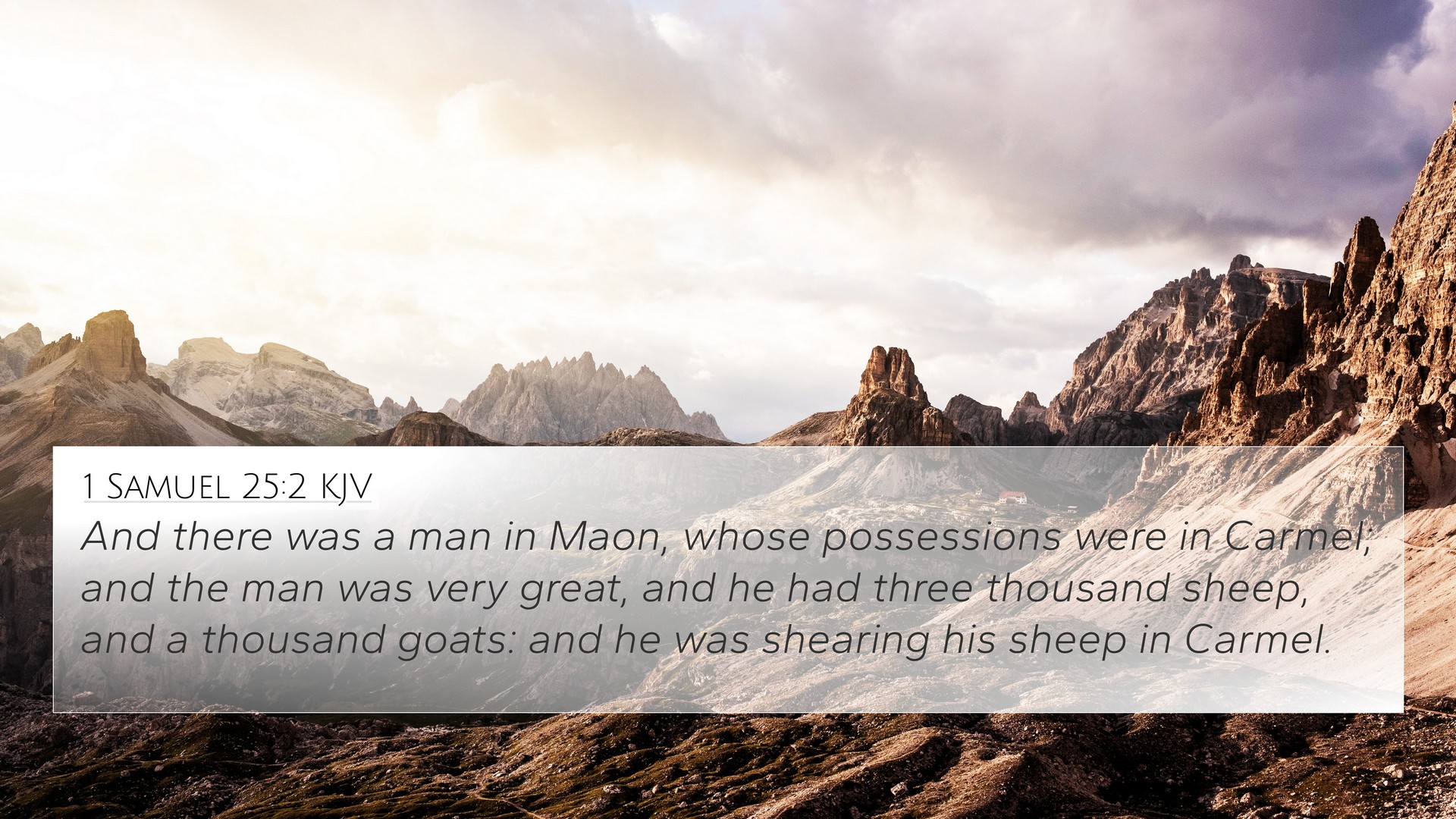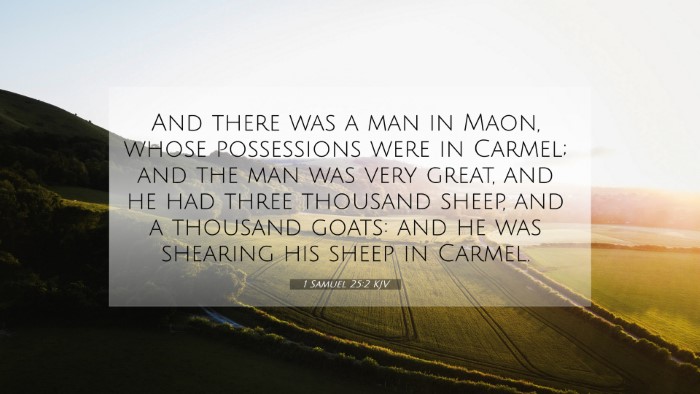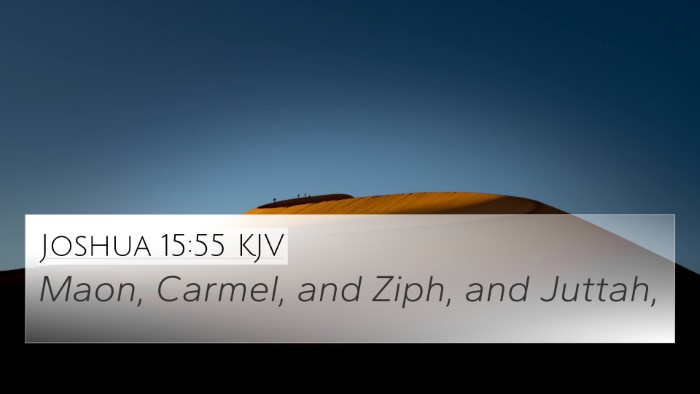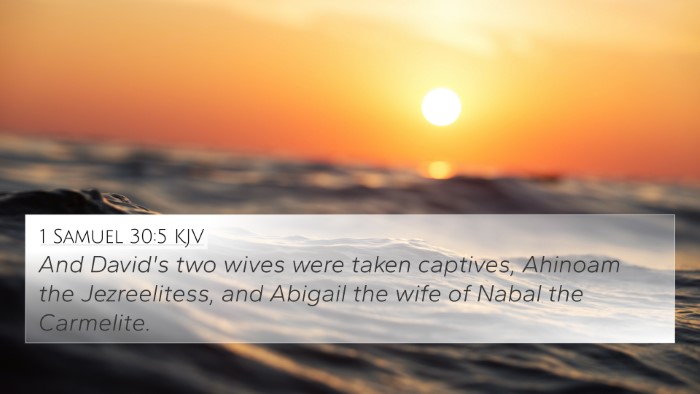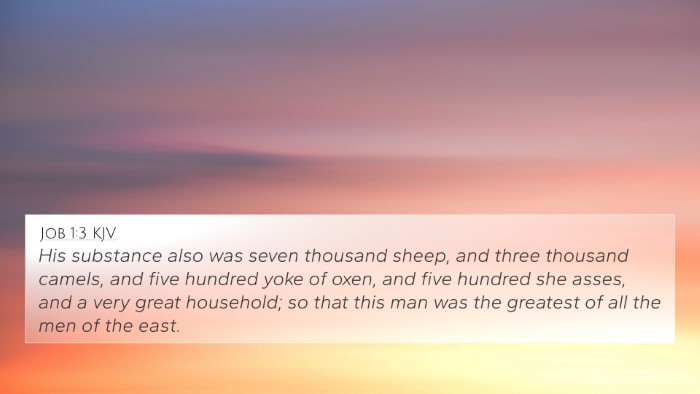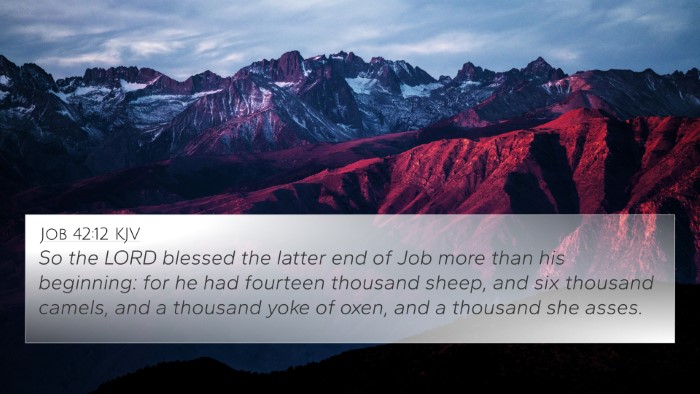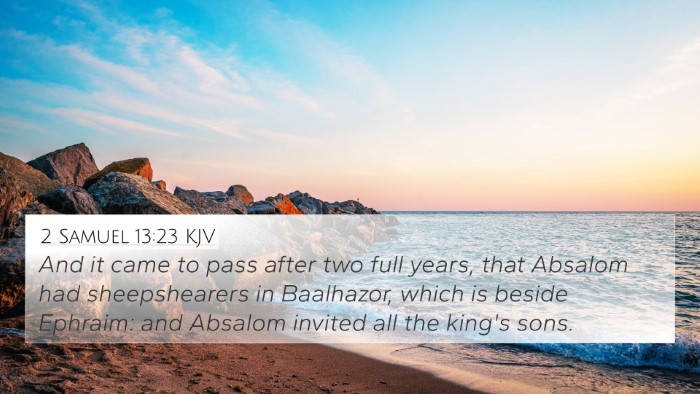Understanding 1 Samuel 25:2
In 1 Samuel 25:2, we encounter a significant narrative moment that highlights the dynamics of human relationships and divine providence. The verse reads:
"And there was a man in Maon, whose possessions were in Carmel; and the man was very great, and he had three thousand sheep and a thousand goats: and he was shearing his sheep in Carmel."
Summary of the Verse
This verse introduces Nabal, a wealthy sheepmaster from Maon, whose wealth is symbolized by his large flock. His prosperity is given particular emphasis as it sets the stage for the ensuing conflict and resolution involving David and Abigail. The mention of sheep-shearing indicates a time of feasting and celebration, contrasting with the impending moral failure demonstrated by Nabal.
Commentary Insights
Matthew Henry's Commentary
Matthew Henry emphasizes the significance of Nabal's wealth and reputation, noting that his possession of “three thousand sheep” is an indication of his status. However, Henry also shares insights on Nabal's character, labeling him as “churlish and evil in his doings.” His refusal to acknowledge David's need for help showcases the moral folly that accompanies excessive wealth.
Albert Barnes' Notes
Albert Barnes highlights the contrast between Nabal’s riches and his folly, suggesting that wealth does not guarantee wisdom or kindness. Barnes draws attention to the social implications of the sheep-shearing season, which should have been a time of generosity, underscoring the failure of Nabal to act in accordance with the cultural expectations of hospitality.
Adam Clarke’s Commentary
Adam Clarke explores the name “Nabal,” which means "fool," indicating a deeper thematic connection to the text. Clarke notes how the wealth and circumstance of Nabal should have provoked a benevolent response towards others, particularly David and his men, who were in need. Clarke also reflects on the providential setup leading to the eventual involvement of Abigail, suggesting that God orchestrates events for His purposes.
Thematic Connections
The themes presented in this verse resonate with various Biblical principles such as:
- Wealth and Responsibility: The wealth Nabal possesses comes with an ethical obligation to assist those in need.
- Hospitality in Scripture: The scriptural expectation is that riches should be coupled with generosity, echoing throughout various texts.
- Divine Providence: The unfolding events serve to demonstrate how God uses human folly for His ultimate purposes.
Cross References
- 1 Samuel 25:10-11: Nabal's refusal to provide for David exemplifies his character.
- Proverbs 21:13: "Whoever shuts their ears to the cry of the poor will also cry out and not be answered."
- Proverbs 23:6-7: Insights into the foolishness of being greedy and selfish.
- Luke 12:15: Jesus warns against all kinds of greed, aligning with the folly of Nabal.
- Ephesians 4:28: "He who has been stealing must steal no longer, but must work, doing something useful with their own hands." A moral code that contrasts with Nabal's actions.
- Matthew 25:40: Jesus teaches that whatever is done for the least of these, is done for Him.
- James 2:14-17: Faith without works is dead, resonating with Nabal’s inaction.
Further Analysis & Implications
By examining 1 Samuel 25:2 alongside these cross-referenced verses, we understand the broader narrative and theological implications. We see how the character of individuals influences their circumstances and relationships with others. Moreover, this scripture challenges readers to reflect on their responsibilities regarding wealth and generosity.
Tools for Cross-Referencing Scripture:
Utilize resources like a Bible concordance or a cross-reference Bible study guide to further explore similar themes and passages. Engaging in comparative Bible verse analysis will enhance understanding of the interconnections within the text, revealing a rich tapestry of scripture that speaks to moral and ethical principles.
Conclusion
In conclusion, 1 Samuel 25:2 encapsulates significant themes that resonate through various scriptures, reminding believers of the importance of ethical conduct, generosity in times of need, and the overarching sovereignty of God in orchestrating events for His divine purposes. By connecting this verse to others, we create a multifaceted understanding of Biblical teachings that promote a life reflective of Christ-like compassion and wisdom.
